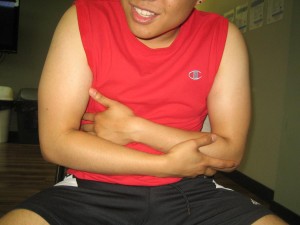Watery, loose stools often last for several days and necessitates frequent trips to the bathroom. The causes of watery, loose stools include bacteria, viruses, medications, surgery and GI tract issues.
Many individuals suffer from watery, loose stools 1-2 times in a year and rarely becomes serious. The additional symptoms linked with loose stools include fever, stomach pain and cramping as well as bloating. If the diarrhea lasts more than 3 days, stools turn black in appearance or there is intense pain, a doctor should be consulted.
Home remedies for loose stools

Loose stools settle on its own since it usually lasts for only a few days. Dairy foods, high-fat foods and spicy dishes must be avoided for several days.
Since bowel movements steadily revert to normal mode, the addition of semisolid as well as low-fiber foods is suggested. The individual must gradually eat toast, crackers, chicken and rice until a regular diet can be tolerated. Other low-fiber foods include ripe bananas, yogurt, smooth peanut butter and applesauce.
In case the rectal region is tender from the passage of loose, watery stools, a Sitz bath or soak in a tub might be beneficial. The warm water helps relieve the itchiness and discomfort linked with diarrhea. It is also recommended to apply petroleum jelly or a hemorrhoid cream to lessen the discomfort in the area.
Hydrotherapy
If suffering from loose stools, the body can become severely dehydrated. The individual should always bring a water bottle and take a drink throughout the day.
It is recommended to drink 2-3 quarts of water in a day. Other alternatives include broths and caffeine-free soda as well as tea, sports drinks and fat-free chicken broth.
Medications
There are over-the-counter drugs to manage loose stools that are available in tablet or liquid form. The commonly used medications include bismuth subsalicylate or loperamide.
In some cases, antibiotics might be prescribed if a parasitic or bacterial infection occurs. As for viral cases, antibiotics will not have any effect.
